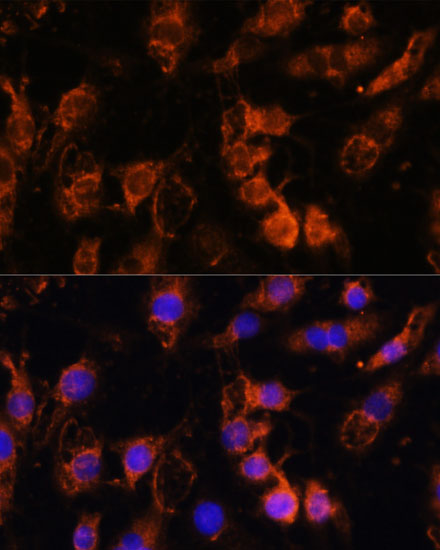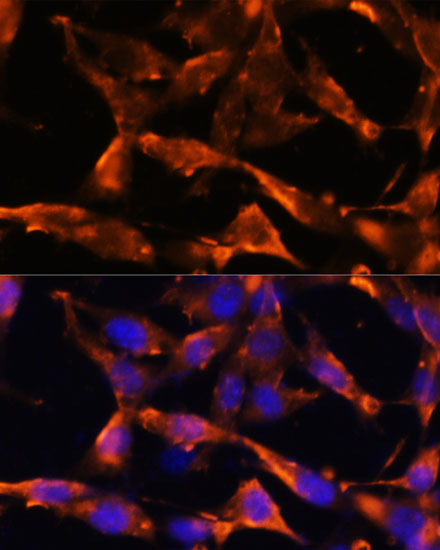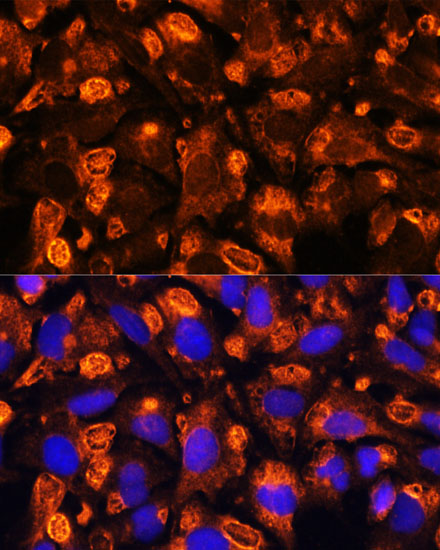-
Product Name
FGA Polyclonal Antibody
- Documents
-
Description
Polyclonal antibody to FGA
-
Tested applications
IF
-
Species reactivity
Human, Mouse, Rat
-
Alternative names
FGA antibody; Fib2 antibody; fibrinogen alpha chain antibody
-
Isotype
Rabbit IgG
-
Preparation
Antigen: Recombinant fusion protein containing a sequence corresponding to amino acids 40-339 of human FGA (NP_068657.1).
-
Clonality
Polyclonal
-
Formulation
PBS with 0.02% sodium azide, 50% glycerol, pH7.3.
-
Storage instructions
Store at -20℃. Avoid freeze / thaw cycles.
-
Applications
IF 1:50 - 1:200
-
Validations

Immunofluorescence - FGA Polyclonal Antibody
Immunofluorescence analysis of C6 cells using FGA antibody at dilution of 1:100. Blue: DAPI for nuclear staining.

Immunofluorescence - FGA Polyclonal Antibody
Immunofluorescence analysis of NIH/3T3 cells using FGA antibody at dilution of 1:100. Blue: DAPI for nuclear staining.

Immunofluorescence - FGA Polyclonal Antibody
Immunofluorescence analysis of U-2 OS cells using FGA antibody at dilution of 1:100. Blue: DAPI for nuclear staining.
-
Background
Cleaved by the protease thrombin to yield monomers which, together with fibrinogen beta (FGB) and fibrinogen gamma (FGG), polymerize to form an insoluble fibrin matrix. Fibrin has a major function in hemostasis as one of the primary components of blood clots. In addition, functions during the early stages of wound repair to stabilize the lesion and guide cell migration during re-epithelialization. Was originally thought to be essential for platelet aggregation, based on in vitro studies using anticoagulated blood. However, subsequent studies have shown that it is not absolutely required for thrombus formation in vivo. Enhances expression of SELP in activated platelets via an ITGB3-dependent pathway. Maternal fibrinogen is essential for successful pregnancy. Fibrin deposition is also associated with infection, where it protects against IFNG-mediated hemorrhage. May also facilitate the immune response via both innate and T-cell mediated pathways.
Related Products / Services
Please note: All products are "FOR RESEARCH USE ONLY AND ARE NOT INTENDED FOR DIAGNOSTIC OR THERAPEUTIC USE"
